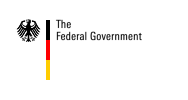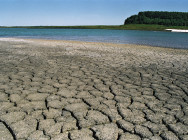Climate Change Mitigation: No risk to the economy
The good news is that the economy can support ambitious goals towards combating climate change as they would effect a mere 0.1 percent drop in annual economic growth worldwide. According to government speaker Ulrich Wilhelm, climate change mitigation does not harm the economy: the costs of early mitigation are significantly less than those of cleaning up the damage if climate change continues unabated.
The Earth’s temperature must not be allowed to rise more than 2.4 degrees Celsius. If it does, say the report’s authors, the effects will be unmanageable. Gathered in Bangkok, the 400 members of the Intergovernmental Panel on Climate Change (IPCC) are thus calling for greater energy efficiency in electrical equipment, buildings and transport.
Europe shows the way
The European Union has already made inroads in this direction: at their recent Spring Summit, the EU heads of state and government agreed to increase energy efficiency by 20 percent and to raise the share of renewable energy in energy supply to 20 percent by 2050. This puts pressure on industry to develop innovative, future-ready and exportable technology.
At the G8 Summit in Heiligendamm this coming June, Chancellor Merkel will propose cutting emissions in Europe by as much as 30 percent on the condition that the G8 nations adapt their own energy policies to follow suit.
Protecting ecosystems
The IPCC report points not only to energy-related CO2 emissions, but to the harmful effects of other greenhouse gases. For example, methane and nitrous oxide occur in agricultural practices like livestock husbandry, rice cultivation in paddy fields and the use of nitrogen fertiliser. Increasing importance is thus placed on making land use more environmentally sound.
As its name suggests, the Intergovernmental Panel on Climate Change is an multi-governmental body set up by the United Nations to conduct research on climate change. It publishes reports at five-yearly intervals, the last being in 2001. These climate assessment reports are a fundamental resource in international climate change policy.
The Fourth Assessment Report (Climate Change 2007) is divided into three parts. Part one sets out the physical science basis of climate change and emphasises the role of human activity in its progression. The second part describes the impacts of the projected rise in temperature: according to the report, a rise in global mean temperature of between 1.5 and 2.5 degrees Celsius puts some 30 percent of the world’s animal and plant species at risk of extinction. Part three of the report looks at potential mitigation options. A summary of all three parts will be adopted in Valencia in November this year.
The next UNFCCC Climate Change Conference will be held in December 2007 in Bali, Indonesia. Its main focus will be on using the IPCC’s Fourth Assessment Report to identify effective measures for climate change mitigation.

